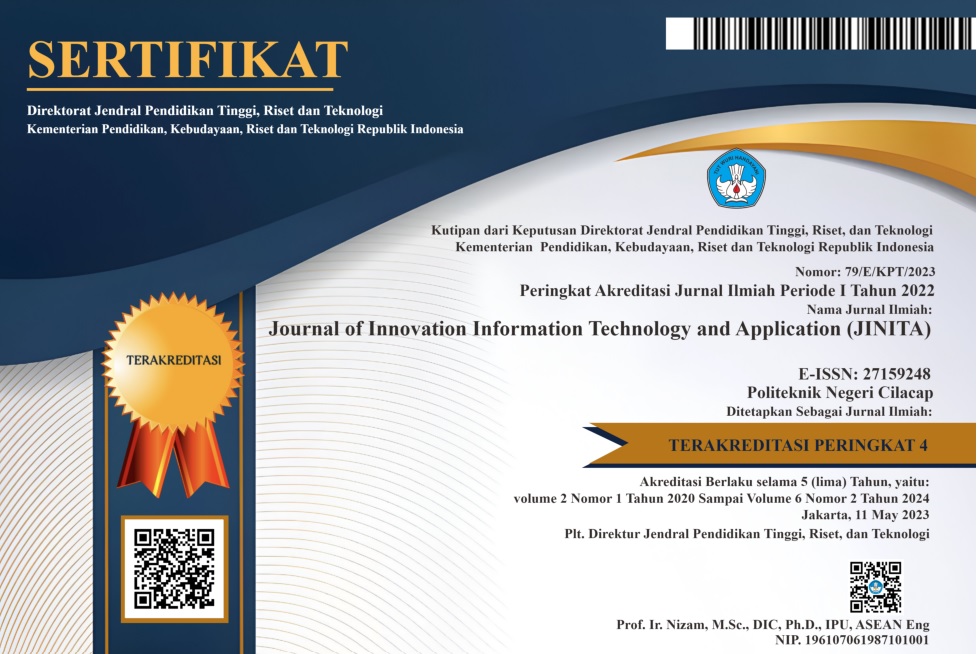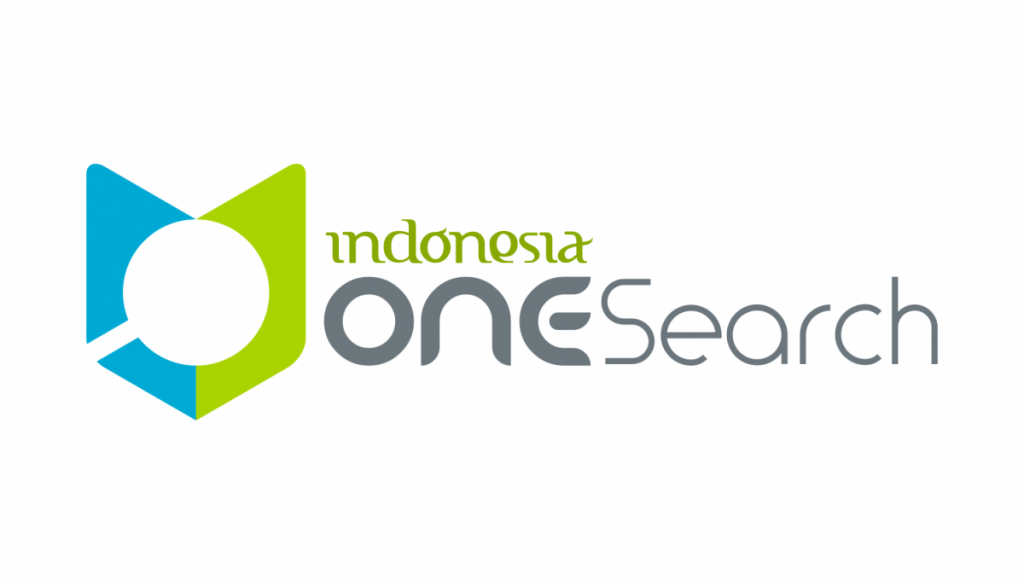Sistem Informasi Pendataan Disabilitas pada Yayasan Pilar Purbalingga
 Abstract views: 243
,
Abstract views: 243
,
 PDF (Bahasa Indonesia) downloads: 177
PDF (Bahasa Indonesia) downloads: 177
Abstract
The development of technology is very helpful in data collection activities. Currently, a lot of data is circulating, but the amount is not in accordance with the data in the field. The information system can help in a more effective and efficient data collection process, in this research related to data collection on disability. Disability Data Collection Information System is a system created to collect data related to foundation management, foundation activities, biodata of persons with disabilities, types of disabilities, skills or training that have been participated in, list of assistance received by disabilities, and volunteer disabilities. The data will be used by the PILAR Purbalingga Foundation to support its activities in the disability domain. From these data can be used as a reference in carrying out activities that will be carried out at the foundation. The output produced from this study is the Disability Data Collection Information System at the Purbalingga PILAR Foundation which produces information related to data on persons with disabilities, volunteers and activities that are suitable for the needs of persons with disabilities under the PILAR Purbalingga Foundation. Data collection methods are carried out through observation and interviews with the manager of the foundation and persons with disabilities. The system development method used is a waterfall, the programming language used is PHP and MySQL for database processing in this study.
References
Badan Pusat Statistik (BPS). Jumlah penyandang disabilitas di Indonesia. 2016.
Hanjarwati, A., Suprihatiningrum, J., & Aminah, S. (2019). Persepsi Penyandang Disabilitas Dan Stakeholder Untuk Mempromosikan Dan Mengembangkan Komunitas Inklusif Di DIY Dan Asia Tenggara. Jurnal Sosiologi Reflektif, 13(2), 379-404.
Soleh, Akhmad. Aksesibilitas Penyandang Disabilitas Terhadap Perguruan Tinggi. Cetakan Pertama, Lkis Pelangi Aksara, Yogyakarta. 2016
Firdaus, V., & Hasanah, H. Pengaruh Pelatihan Dan Pendidikan Kewirausahaan Terhadap Motivasi Berwirausaha Pada Penyandang Disabilitas Di Kabupaten Jember. FENOMENA, 17(2). 2018
Mulyati, T., Rohmatiah, A., & Amadi, D. N. Pelatihan Dan Pendampingan Penyandang Disabilitas Desa Simbatan, Kecamatan Nguntoronadi Kabupaten Magetan. Jurnal Terapan Abdimas, 4(2), 187-191. 2019
Tjahjanti, P. H., Sumarmi, W., Widodo, E., Syamharis, R., Zamroni, S. A., & Prakoso, D. I. Strategi Membantu Wirausaha Disabilitas Untuk Memberdayakan Ekonomi Secara Berkelanjutan. Abdimas Pedagogi: Jurnal Ilmiah Pengabdian kepada Masyarakat, 2(1), 37-43. 2019
Yayasan Pilar Purbalingga. http://pilarpurbalingga.com. Diakses pada 29 Agustus 2019.
Priyanti, Dwi & Siska Iriani. 2013. Sistem Informasi Data Penduduk Pada Desa Bogoharjo Kecamatan Ngadirojo Kabupaten Pacitan. 2(4). 2013.
Putri, Suryati. Pembangunan Sistem Informasi Pendataan Rakyat Miskin Untuk Program Beras Miskin (Raskin) Pada Desa Mantren Kecamatan Kebonagung Kabupaten Pacitan. 2(4). 2010.
Pressman, Roger S. Rekayasa Perangkat Lunak – Buku Satu, Pendekatan Praktisi (Edisi 7). Yogyakarta: Andi. 2012.
Sutabri, Tata. Analisis Sistem Informasi. Yogyakarta: Andi. 2012.
Arief, M.Rudyanto. Pemrograman Web Dinamis Menggunakan PHP dan MySQL, Andi Yogyakarta. 2011.
Muhyuzir T.D., Analisa Perancangan Sistem Pengolahan Data, Jakarta : PT. Alex Media Komputindo. 2010.
Dennis, A., Wixom, B. H. & Roth, R. M. Software Analysis and Design. 5th.New Jersey: Wiley. 2012.
Fathansyah. Basis Data. Bandung: Informatika Bandung. 2012.
Copyright (c) 2020 Journal of Innovation Information Technology and Application (JINITA)

This work is licensed under a Creative Commons Attribution 4.0 International License.
Authors who publish with this journal agree to the following terms:
- Authors retain copyright and grant the journal right of first publication with the work simultaneously licensed under a Creative Commons Attribution License that allows others to share the work with an acknowledgement of the work's authorship and initial publication in this journal.
- Authors are able to enter into separate, additional contractual arrangements for the non-exclusive distribution of the journal's published version of the work (e.g., post it to an institutional repository or publish it in a book), with an acknowledgement of its initial publication in this journal.
- Authors are permitted and encouraged to post their work online (e.g., in institutional repositories or on their website) prior to and during the submission process, as it can lead to productive exchanges, as well as earlier and greater citation of published work (See The Effect of Open Access).
















